Introduction
Metaverse in gaming refers to a virtual universe where players seamlessly interact and explore computer-generated environments in real time. This immersive digital space includes various virtual worlds, gaming landscapes, and experiences. As the gaming industry evolves, new genres and experiences are constantly introduced, with metaverse gaming emerging as the latest innovation set to revolutionize online gaming. The Metaverse Game Development market is currently valued at $22.7 billion, showcasing its significant growth and potential. Players can create personalized avatars, engage in social interactions, attend events, and participate in various activities. Unlike traditional gaming, metaverse gaming introduces a persistent and ever-evolving online environment that extends beyond individual games. In recent years, the metaverse has gained attention due to advancements in virtual reality (VR) and augmented reality (AR). Businesses collaborate with metaverse game development companies to create immersive gaming experiences in this evolving digital landscape.
What is Metaverse?
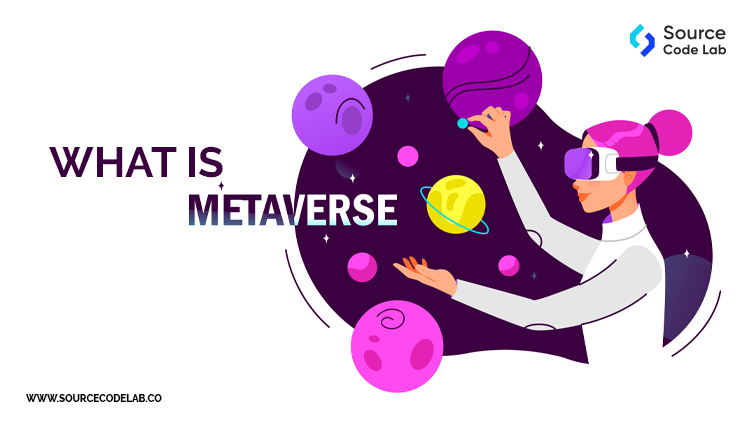
The metaverse, from Neal Stephenson’s Snow Crash in 1992, is a virtual universe powered by technologies like virtual and augmented reality, IoT, and spatial computing. Within this digital realm, you’ll find elements of gamification integrated into various aspects, offering immersive, interconnected, and interactive networks. Gaming has emerged as a prominent feature within the metaverse, with its popularity soaring as more users and gaming companies join the fray. Some predict that gaming in the metaverse could shape the future of gaming, thanks to its 360-degree perspectives and immersive capabilities. In this expansive digital world, users interact through avatars, replica versions of themselves, engaging in various activities like exploring virtual marketplaces, working in virtual offices, attending digital concerts, farming virtual land, and of course, playing interactive video games. Metaverse Game Development company is at the forefront of creating these immersive gaming experiences, leveraging cutting-edge technologies to enhance user engagement and create dynamic virtual environments. In recent years, the term “metaverse” gained significant traction, especially in 2021 when Facebook rebranded to Meta and heavily invested in its development. This move sparked widespread interest and investment from various companies, leading to the creation of online platforms that contribute to this emerging digital realm. The metaverse, closely resembling the physical world, encompasses diverse opportunities, including e-commerce, entertainment, and gaming. Metaverse Game has become a focal point for many companies, aiming to create immersive gaming experiences within this evolving digital landscape.
What is gaming in Metaverse?
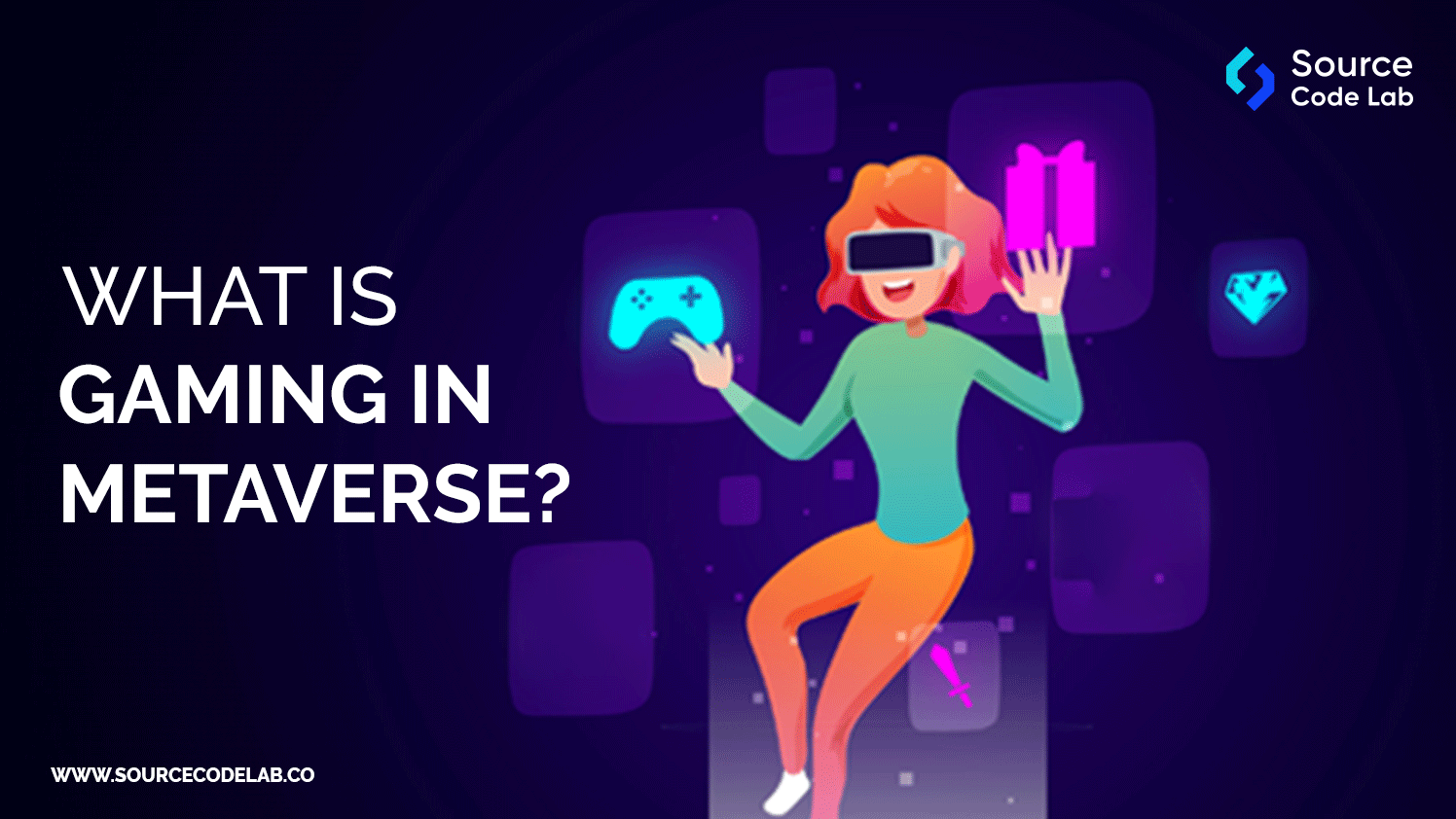
Gaming in the Metaverse introduces a revolutionary dimension to the gaming industry. The immersive 3D environment offered by the Metaverse creates vast opportunities for gamers to engage in ways previously unimaginable. This handshake between the Metaverse and gaming enhances the gaming experience and facilitates a deeper level of immersion. Users can now transcend the confines of traditional two-dimensional screens, immersing themselves in a dynamic three-dimensional world where they can interact intimately with their surroundings. This evolution in gaming extends beyond mere entertainment; it paves the way for a multifaceted virtual existence. Within the Metaverse, users can partake in activities, from attending virtual concerts and business meetings to engaging in play-to-earn gaming with NFTs. The integration of augmented reality elements enhances the overall gaming experience, fostering a deeper connection with the virtual world. Metaverse Game Development Services, including those provided by the Ludo Game Development Company, play a pivotal role in shaping this immersive gaming landscape. By harnessing cutting-edge technologies and innovative game design principles, these services empower developers to create captivating gaming experiences that push the boundaries of traditional gaming. Through collaborative efforts, the Metaverse and gaming industry are revolutionizing the way we interact with digital environments, offering boundless possibilities for exploration, connection, and entertainment.
How Does Metaverse Change the Future of Gaming?
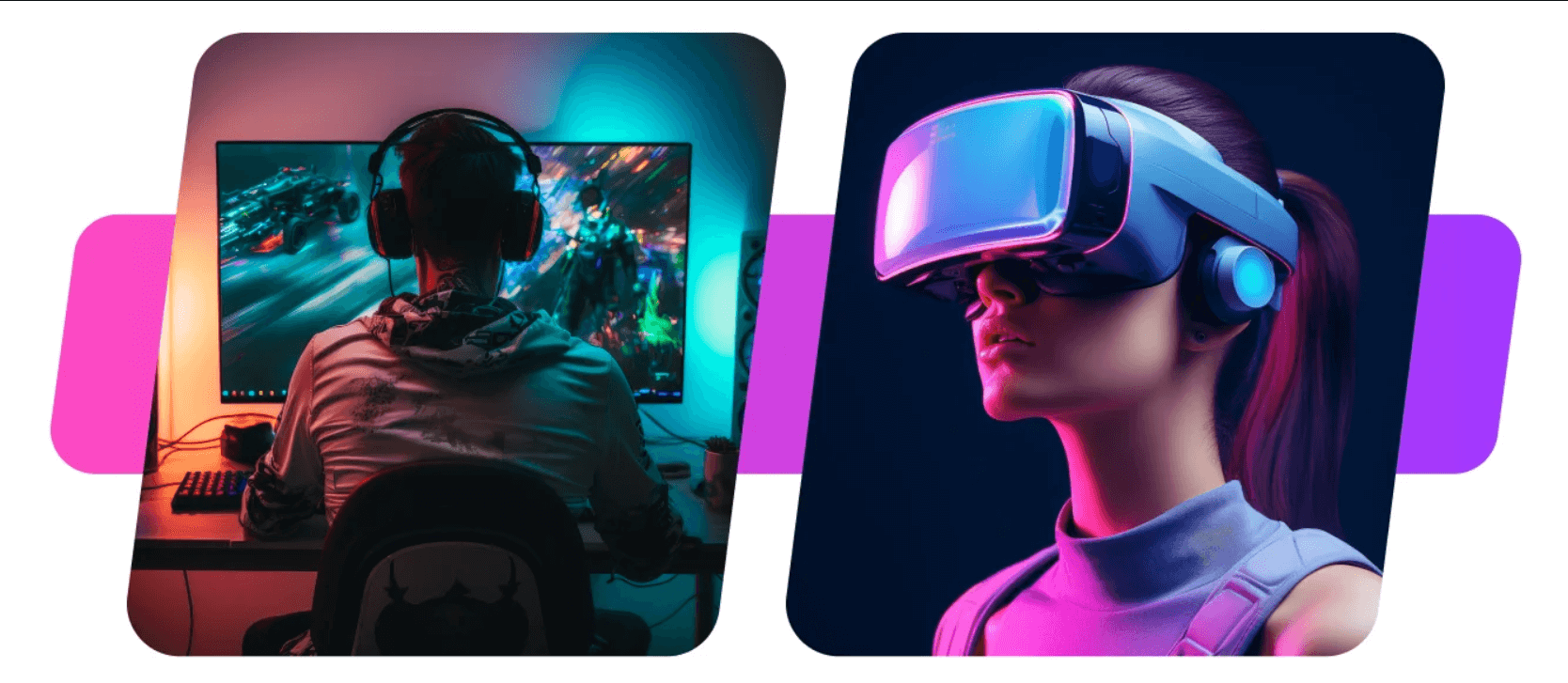
The Metaverse holds immense potential to shape the future of gaming by offering a Virtual Reality space that goes beyond immersive gameplay. It serves as a hub for accessing Web3, cryptocurrencies, collaborative team meetings, and much more. In essence, the Metaverse harnesses technologies like AR and VR to create an organic and lifelike experience, akin to the real world. While still in its early stages, the Metaverse is poised to revolutionize the gaming industry. Projects like Decentraland and Axie Infinity are already paving the way for futuristic gaming experiences. As the Metaverse continues to evolve, users have the opportunity to explore existing projects and experiments, gaining expertise for the next wave of gaming innovations. Metaverse Game initiatives are driving this evolution, promising a future where gaming transcends traditional boundaries and offers limitless possibilities for immersion and interaction.
Technologies Behind the Metaverse Game Development
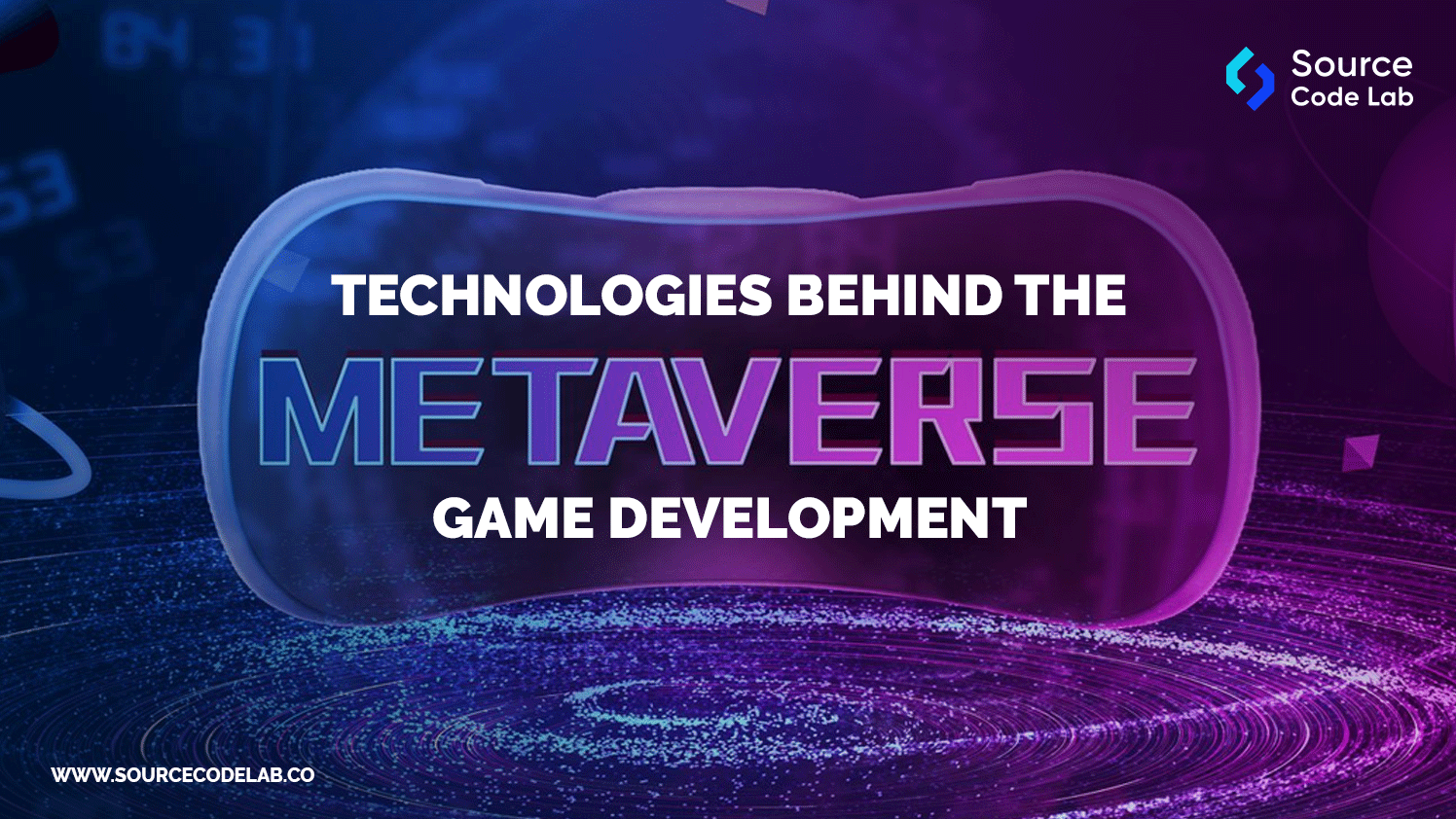
Metaverse Game represents the evolution of traditional gaming into a new era. Departing from gaming consoles, smartphones, and PCs, the progression of Metaverse Game is driven by pioneering technologies such as Blockchain, augmented and virtual reality (AR/VR), artificial intelligence (AI), spatial computing, and advanced graphics. These technologies play pivotal roles in shaping the landscape of gaming within the metaverse.
1. Artificial Intelligence (AI):
The competitive element inherent in poker adds an exhilarating dimension to the game. The quest for victory fuels players’ determination to outwit their opponents, continuously honing their skills in pursuit of success.
2. Internet of Things (IoT):
IoT serves as a fundamental component of Metaverse Game infrastructure. Integration of the metaverse and IoT opens up new possibilities across industrial, individual, and social domains. By seamlessly connecting virtual spaces with the physical world, IoT enables a user-centered experience within the metaverse. For instance, in a factory setting, IoT sensors on digital twins of machines can provide real-time feedback, enhancing environmental exploration within Metaverse Game environments.
3. Extended Reality (XR):
XR technologies, including Augmented Reality (AR), Virtual Reality (VR), and Mixed Reality (MR), revolutionize data visualization by transitioning from 2D to 3D experiences. AR glasses, when more widely adopted, will leverage computer vision to provide users with contextual information about their surroundings. Already utilized in products like Microsoft’s HoloLens, XR immerses users in 3D holographic images, blurring the lines between physical and virtual environments within Metaverse Game experiences.
4. Brain-Computer Interfaces (BCIs):
While BCIs are considered futuristic, they hold promise for shaping the future of Metaverse Game. BCIs aim to replace traditional control screens and physical hardware, offering users direct interaction with the digital world. Although still in the realm of science fiction, the combination of BCIs and XR positions itself as a potential computing platform for the metaverse, according to the World Economic Forum.
5. 3D Modeling and Reconstruction:
3D modeling and reconstruction technologies capture the essence of real-world objects, laying the foundation for the Metaverse Game environment. These tools provide a three-dimensional framework for creating immersive virtual experiences. With the global market for 3D reconstruction technology projected to double by 2030, the Metaverse Game landscape is poised for significant expansion.
6. Spatial and Edge Computing:
Spatial computing, coupled with edge computing, ensures seamless interaction within the Metaverse Game environment. By combining AR, VR, and MR technologies, users can engage with the real world in real-time, enhancing immersion and user experience. Spatial technologies, including computer vision, play a crucial role in placing avatars and facilitating collaboration within Metaverse Game environments.
7. Blockchain:
While currently less prominent in enterprise metaverses, Blockchain holds the potential for securing digital content and data within Metaverse Game environments. Discussions focus on decentralizing the metaverse to mitigate delays and single points of failure, highlighting Blockchain’s role in ensuring the integrity and security of the gaming experience.
NFTs in the Metaverse
In the context of the Metaverse Game, Non-Fungible Tokens (NFTs) play a significant role in revolutionizing ownership of digital assets. NFTs, or non-fungible tokens, are unique digital assets stored on the blockchain, each represented by a distinct certificate that verifies ownership and authenticity. Unlike fungible tokens, NFTs cannot be exchanged on a one-to-one basis due to their uniqueness. In traditional gaming, players typically own in-game assets like skins, avatars, weapons, and vehicles, which hold value only within the confines of the game environment. However, in the Metaverse Game, NFTs transform these digital assets into valuable commodities that extend beyond the game itself. Players within Metaverse Game environments have the opportunity to acquire NFTs through gameplay or purchase, retaining ownership of these assets beyond the boundaries of any single game. These NFTs can then be utilized across various crypto-based applications or traded for real-world currency on crypto marketplaces, unlocking new avenues for value creation and economic exchange within the Metaverse Game ecosystem.
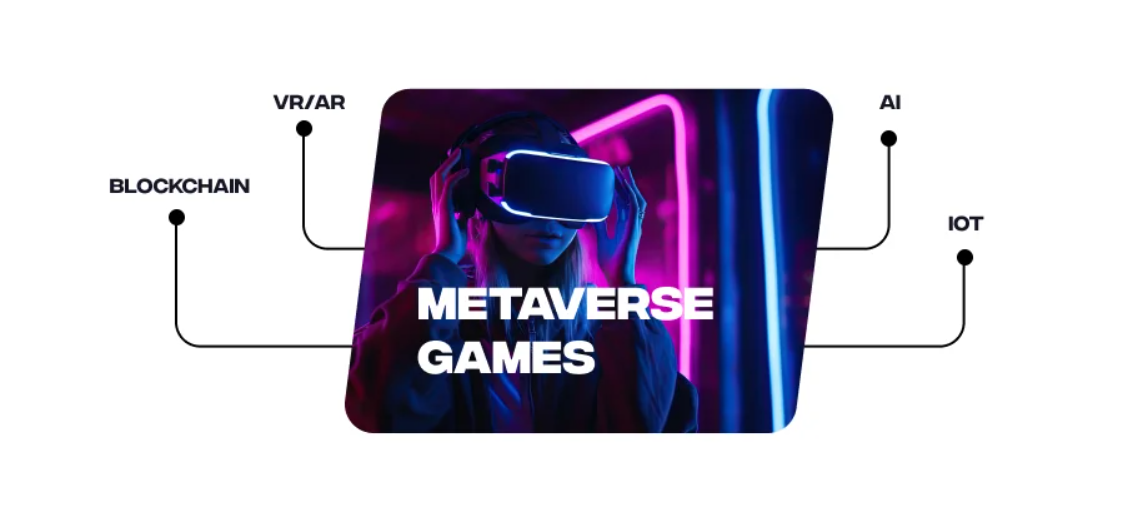
Metaverse Game into virtual gaming
The integration of Metaverse Game into virtual gaming has paved the way for diverse gaming experiences and exciting entertainment opportunities for players. Let’s delve into some of the gaming niches players can explore within the Metaverse Game landscape:
Social Gaming:
Metaverse Game fosters social interaction while gaming, allowing players to connect with others from around the globe. Unlike traditional online gaming, which often limits interactions to a small number of opponents, metaverse gaming offers expansive opportunities for social engagement. Games like Roblox enable players to create and share their games, fostering socialization while building virtual worlds.
Portable Game Assets:
Metaverse Game boasts an extensible design that facilitates seamless transitions between real-world and virtual universes. Blockchain technology enhances asset portability by enabling the transfer of game assets, avatar upgrades, and cryptocurrencies between games. This means that players can use a purchased item, such as a sword, across multiple metaverse games, enhancing their gaming experience and investment value.
Play-to-Earn (P2E):
Metaverse Game offers players more than just entertainment; it presents an avenue for earning money through gameplay. Games like The Sandbox, Cryptkitties, and Axie Infinity have gained popularity as leading play-to-earn metaverse games. Within these games, players have the chance to earn cryptocurrencies or valuable NFTs as they progress or complete in-game tasks.
Mixed Reality Experience:
Metaverse Game goes beyond traditional VR experiences by leveraging mixed reality technology to merge physical and virtual worlds seamlessly. Mixed reality integrates virtual elements into real-world environments, allowing players to interact with and manipulate virtual objects within their physical space. Games like Pokémon Go exemplify this concept, overlaying gaming action onto real-world locations and encouraging players to explore and engage with virtual objects within their surroundings. As the Metaverse Game evolves, players can expect even more innovative gaming experiences that blur the lines between reality and virtuality. Collaborating with a leading Mobile Game Development company can help developers harness the full potential of Metaverse Game, creating immersive and captivating gaming experiences for players worldwide.
Benefits of Metaverse Gaming
Immersive Experiences:
Metaverse games offer immersive experiences that transcend the boundaries of traditional gaming. By leveraging technologies like augmented reality (AR), virtual reality (VR), and mixed reality (MR), players can explore rich and dynamic virtual worlds that feel incredibly lifelike.
Social Interaction:
One of the key draws of the Metaverse Game is its emphasis on social interaction. Players can connect with friends and fellow gamers from around the world, collaborating on quests, participating in virtual events, and forming lasting friendships within the Metaverse.
Economic Opportunities:
Metaverse games introduce new economic opportunities for players through concepts like play-to-earn (P2E) and the use of non-fungible tokens (NFTs). Players can earn real-world value by participating in gameplay, trading virtual assets, and engaging in the digital economy of the Metaverse.
Customization and Personalization:
Metaverse games allow players to personalize their gaming experience like never before. From customizing avatars and virtual spaces to creating and sharing user-generated content, players have unprecedented control over their virtual identities and environments.
Cross-Platform Compatibility:
Metaverse games bridge the gap between different gaming platforms and devices, offering cross-platform compatibility that enables seamless gameplay across PCs, consoles, mobile devices, and VR headsets. This accessibility ensures that players can connect and play together regardless of their preferred gaming platform.
Innovative Gameplay Mechanics:
Metaverse games push the boundaries of traditional gameplay mechanics, introducing innovative features like spatial computing, persistent worlds, and emergent gameplay. These elements create dynamic and ever-evolving gaming experiences that keep players engaged and coming back for more.
Community Engagement:
Metaverse games foster vibrant and active communities centered around shared interests, fandoms, and gaming experiences. Players can join guilds, participate in tournaments, and attend virtual events, fostering a sense of belonging and camaraderie within the Metaverse.
Also Read: Top 10 Game Development Companies in 2024
Challenges of Metaverse Gaming
Interoperability:
Interoperability, while advantageous, presents a significant challenge for Metaverse Game developers. The utilization of advanced technologies like blockchain, AR, and VR results in varying protocols across different gaming platforms. This diversity complicates the creation of a cohesive experience across multiple Metaverse Game platforms.
Protecting IP Rights:
The seamless interaction of game characters and assets across different games or metaverse experiences introduces complexities in terms of ownership and intellectual property (IP) rights. While this interactivity enhances the appeal of Metaverse Gaming, it also raises concerns regarding potential infringement issues. Game companies must implement measures to safeguard their IP rights and prevent unauthorized use of their creations.
Data Security:
Metaverse games rely on collecting extensive user data to craft immersive experiences. However, ensuring the security and privacy of this data poses a significant challenge for Metaverse Game providers. Players expect their data to be protected from illegal use or exposure to malicious entities. Thus, Metaverse Gaming companies must adhere to stringent privacy standards and implement robust security measures to safeguard user data.
Incorporating Blockchain and NFTs:
The integration of blockchain technology and Non-Fungible Tokens (NFTs) into Metaverse Gaming presents notable challenges for game providers. While blockchain and NFTs offer unique opportunities for enhancing gameplay and ownership experiences, their implementation remains complex. Many providers struggle to find practical economic models to monetize NFT-based games effectively, hindering widespread adoption and profitability in this emerging sector.
Top Metaverse Games
Decentraland:
Decentraland is a decentralized virtual reality platform powered by the Ethereum blockchain. Users can build, discover, and profit from virtual realms and adventures. Players can buy, sell, and trade virtual land and assets using the platform’s native cryptocurrency, MANA.
The Sandbox:
The Sandbox is a virtual world where players can build, own, and monetize their gaming experiences using blockchain technology. It features a voxel-based editor that enables players to create and customize their virtual lands and assets, which can be traded and sold as non-fungible tokens (NFTs).
Crypto Kitties:
Crypto Kitties is a game built on blockchain technology where players can gather, breed, and exchange digital felines. Each cat is represented as an NFT on the Ethereum blockchain, making them unique and scarce. Players can breed their cats to create new, rare offspring, which can then be traded or sold on the marketplace.
Axie Infinity:
Axie Infinity is a play-to-earn blockchain-based game where players collect, breed, and battle digital creatures called Axies. Players can earn cryptocurrency rewards by participating in battles and completing various in-game tasks. Axies are represented as NFTs, allowing players to buy, sell, and trade them on the marketplace.
Roblox:
While not exclusively a metaverse game, Roblox is a popular platform that enables users to create and play games created by other users. It features a vast array of user-generated content, ranging from virtual worlds and experiences to games and activities. Players can socialize, collaborate, and explore a wide variety of virtual environments within the Roblox universe.
Top Companies Leading the Metaverse Gaming Revolution
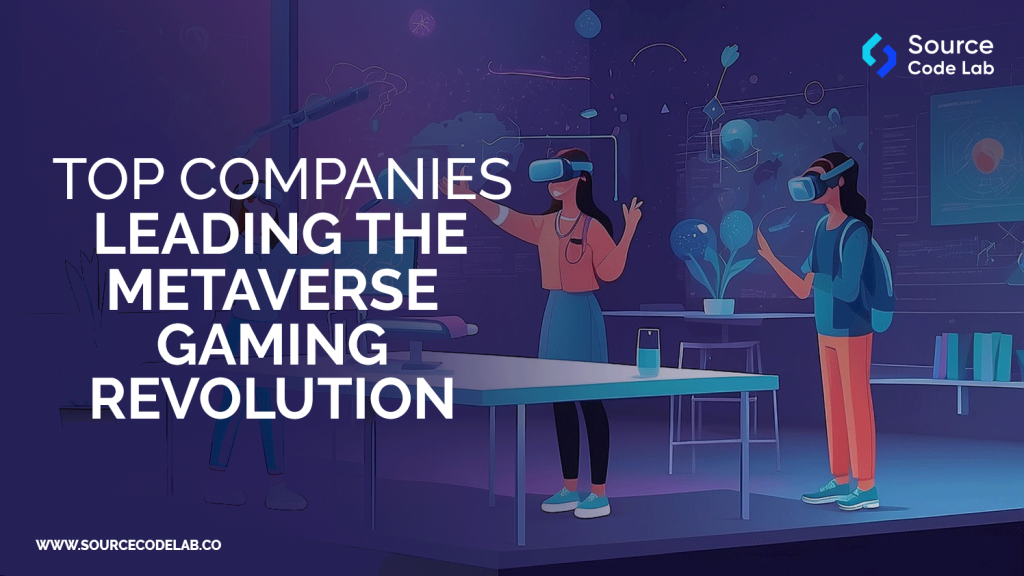
Source Code Lab
Source Code Lab contributes to the metaverse gaming ecosystem with its innovative solutions and technological expertise. As a key player in Custom Game development Company, Source Code Lab enhances gaming experiences through cutting-edge solutions and collaborative initiatives, further enriching the metaverse gaming landscape.
Decentraland
Decentraland stands as a pioneering force in metaverse gaming, introducing blockchain-based land ownership and decentralized virtual experiences. Players can own virtual land as NFTs, craft their gaming realms, and engage in asset trading within a decentralized virtual marketplace.
Sandbox
Sandbox drives innovation with its platform, offering users the tools to create and manage virtual spaces within the metaverse. By blending user-generated content, world-building capabilities, and NFT asset ownership, Sandbox empowers players to build and monetize their virtual creations.
Epic Games
Epic Games, renowned for Fortnite, has captivated millions with its battle royale and world-building prowess. Epic Games’ Unreal Engine technology has been instrumental in shaping immersive gaming experiences. The integration of social events like concerts within its games underscores Epic Games’ vision for the metaverse.
Roblox
Roblox has redefined social gaming with its metaverse platform, enabling users to create and play games within a vibrant virtual environment. With a focus on user-generated content and social interaction, Roblox has garnered immense popularity. Notable games like Adopt Me! and Brookhaven RP have attracted millions of players, showcasing the platform’s appeal within the metaverse gaming landscape.
Also Read: How Much Does It Cost To Develop A Real Money Game?
How To Build a Metaverse Game?
- Choosing the Blockchain Ecosystem
- Creating Storyboards
- Developing Visuals
- Implementing Game Mechanics
- Integration and Testing
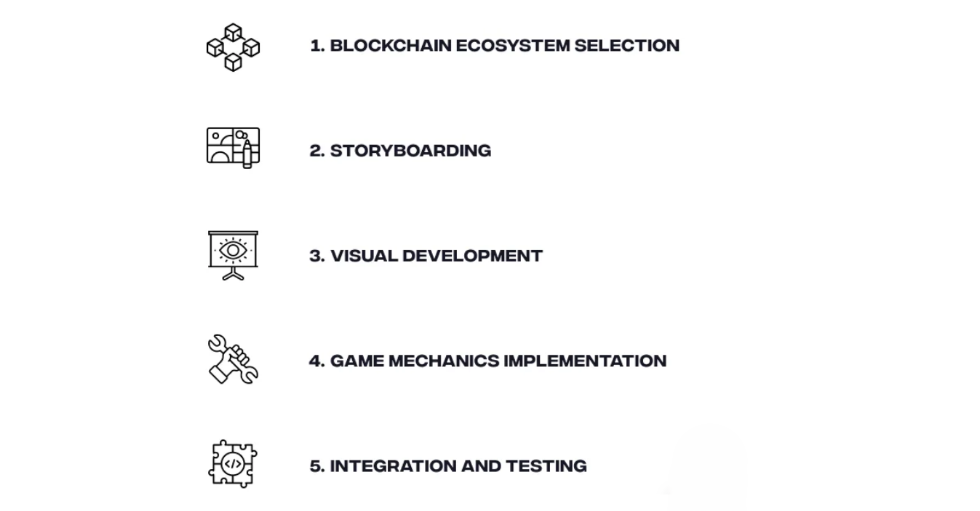
In the development process of most metaverse games, the initial step involves selecting a suitable blockchain ecosystem upon which the game will be constructed. This crucial decision determines the fundamental characteristics of the game. Following this, the storyboard is prepared, outlining the game’s storyline, character progression, and overall gameplay mechanics. Once the storyboard is finalized, the focus shifts to visual development, where the game environment, characters, and assets are created. Subsequently, the game mechanics are implemented, including character animation and sound integration. Extensive testing is then conducted to ensure the game functions seamlessly before its official release.
The future of metaverse gaming
The future of metaverse gaming is still in its early stages, but it holds significant potential to reshape the gaming industry and the global economy. While it’s difficult to gauge the full impact at this point, it’s clear that metaverse gaming is poised to become one of the primary applications of the metaverse. Presently, around 200 million people actively participate in online gaming, yet most internet-based games are not integrated with the metaverse. However, we anticipate a growing adoption of metaverse technology in the future as more Hire game developers recognize its potential benefits. This could lead to a transformation of many conventional games into metaverse games. The future of metaverse gaming is closely linked to advancements in cutting-edge technologies such as AR/VR, edge computing, AI, 5G, and blockchain. The pace of development in this sector will be determined by the rapid growth of these technologies in the coming years.
How Can Source Code Lab Help You with Metaverse Game Development?
At Source Code Lab, we are equipped to assist with metaverse game development. We offer comprehensive Game development services, including product design, delivery, and launch. Whether you have a groundbreaking metaverse game idea or need assistance with core gameplay mechanics, backend infrastructure, or user interfaces, we are here to bring your vision to life. Contact us today to learn more about our services and how we can help you with your metaverse gaming project.



